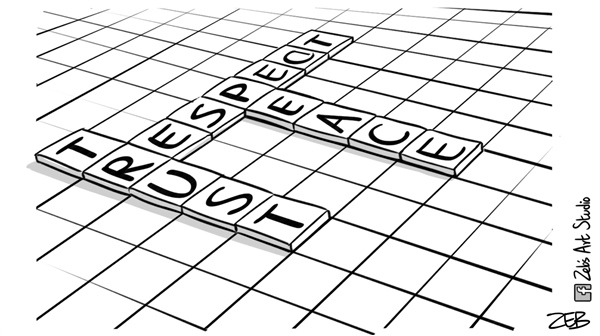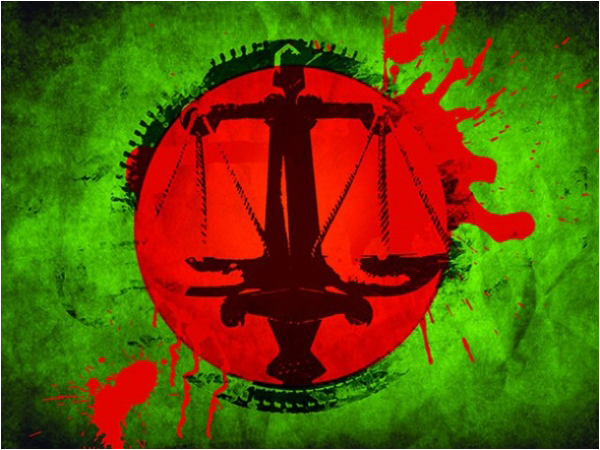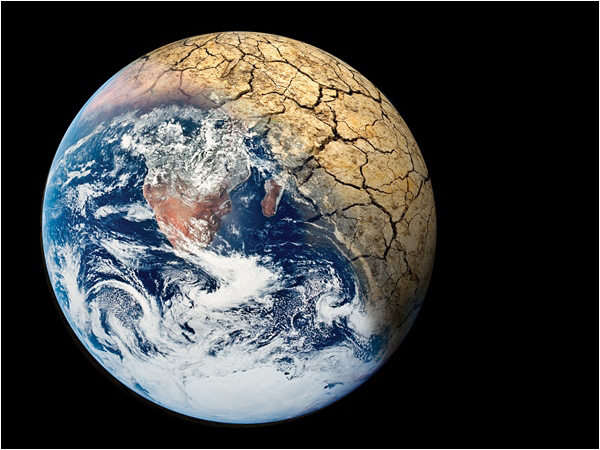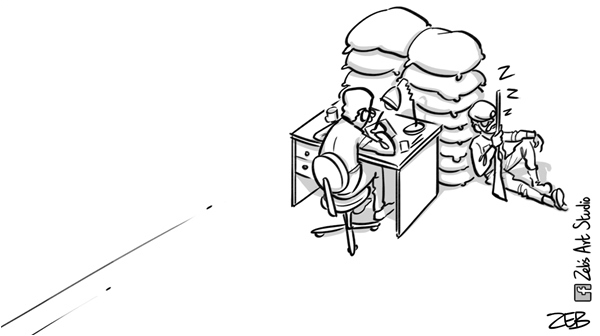
Women rights are human rights
Sir,
The Punjab Commission on Status of Women in collaboration with White Ribbon Campaign Pakistan held a seminar on Women’s Rights and empowerment at Lahore College for Women University on International Human Rights Day. A large number of students and faculty members of the university participated in the seminar that was aimed at creating awareness on women rights and link of denial of rights with violence against women. Speakers at the seminar expressed concerns over the status of women in Pakistan, and admitted that although there are good laws introduced by the Punjab government, there is a lack of awareness amongst women at all levels about their legal rights. Students were encouraged to pass on the messages to other females to create a chain of change and to spread awareness. Fauzia Viqar said that there was an increasing recognition of the various types of violence against women in Pakistan. This recognition was manifest in measures taken by the Government of Punjab to promote women’s economic, social and legal empowerment. She also highlighted plans of the commission to monitor the implementation of laws, raising awareness of rights and remedies and to develop gender indicators for monitoring recently adopted 2030 Development Agenda for Sustainable Development in Punjab. Sarah Shahid was of the view that it is very important that young girls are aware of their legal rights, so they can stop others from violating their rights. She stressed that until the society accepts women rights as human rights it is impossible to improve the situation of women of Pakistan.
Shunila Ruth referred to new legislation done by the Punjab Assembly in terms of ending violence against women. She said that there are several laws in the process as well. She encouraged young girls to be empowered enough to claim their rights themselves, instead of expecting others to do so. 16 Days of Activism against gender-based violence is an international campaign to challenge violence against women and girls. The campaign runs every year from 25 November, the International Day for the Elimination of Violence against Women, to 10 December, Human Rights Day. It is a time to galvanise action to end violence against women and girls. This year a new Sustainable Development agenda, which for the first time includes specific targets and indicators on ending violence against women, also replaced the Millennium Development Goals. Internationally, 16 days of activism are celebrated with the theme of “From Peace in the Home to Peace in the World: Make Education Safe for All!”
Sarah Haider,
Lahore.

Pak-Afghan peace
Sir,
There have been many ups and downs in the relationship between Pakistan and Afghanistan. Immediately after taking over the reins of Afghanistan, Mohammad Ashraf Ghani made moves that signalled a future of peace and cooperation between the two countries, giving birth to the hope, on both sides, that the rapidly deteriorating relations between the two volatile neighbours are about to move in the right direction. Unfortunately, however, this hope dissipated sooner than expected. The government of President Ashraf Ghani lost no opportunity in blaming Pakistan for conducting terror attacks in Afghanistan. Naturally, Pakistan tersely rejected the allegations of the Afghan government.
Unquestionably, a politically stable and economically strong Afghanistan is in the interest of not only Pakistan, but the entire region. Why would then Pakistan at all support any subversive activity, by any quarter, in Afghanistan that would destabilise the country? It is vital to the interest of both Afghanistan and Pakistan that they bury the hatchet, once and for all, and make genuine endeavours to establish mutual trust and respect among each other. This is one extremely significant element that seems to be conspicuously missing in the existing frosty relationship between the two countries.
Fazal Elahi,
Islamabad.
Indigenous languages
Sir,
A national consensus has evolved to safeguard the indigenous languages of Pakistan. In this regard, it should be realised that those who disown their indigenous languages cease to be members of their linguistic communities and are fracturing society. The promotion of these languages can be facilitated with a provision that adequate knowledge of one indigenous language would be necessary for the recruitment of public servants. The knowledge of global language English and sub-continental language Urdu should not be considered sufficient qualification to join official service cadres.
Taraq Jazy,
Karachi.
Selective justice
Sir,
Why blame outside elements for terrorism, lawlessness, crime, terrorism and our perpetual state of bankruptcy, when elected executive, paid civil or uniformed bureaucracy, lower judiciary and law enforcement selectively apply law, punish some, and reward others for the same offence. Almost every other day, scores of poor expatriate workers are offloaded, put in prison for carrying Pakistani or foreign currency that exceeds the legal limit, but when it comes to model Ayyan, working for powerful members of the corrupt elite, everybody goes out of the way to defend her and facilitate her early departure.
Pakistan can become bankrupt for all they care, as long as the billions of dollars belonging to them are transferred.
An orphan gets killed in Lahore’s posh Cavalry Ground by a stray bullet fired by the spoiled scion of politically powerful family in Punjab and gets away for ‘lack of evidence’, having bribed witnesses in the presence of police, and the judge lets him go, forcing the chief justice to take notice of the issue. Thousands of poor are put in prison for illegal power connections, but if the same crime is committed by a posh housing society adjacent to Lahore’s Allama Iqbal Airport, nothing happens. A poor airhostess caught smuggling cartons of cigarettes or cell phones is sacked, but not a well connected pilot, while another PIA captain with a fake degree continues to hold an executive assignment and yet another faces charges of terrorism for crash landing an aircraft under a state of intoxication. What else constitutes an ideal condition for terrorism and crime to flourish, and a state to be on the edge of anarchy? What else makes a country more eligible to be defined as a banana republic?
Aneela Chandio,
Sukkur.
Spare our senior citizens
Sir
While imposing withholding tax on non-filers, the government completely ignored retired people who have no income other than from their savings. Saving schemes allow senior citizens an investment of a meagre limit of 30 lakhs and the profit on it has also been reduced. Though not enough for good sustenance, the savers are confronted with over taxation in the shape of indiscriminate imposition of withholding tax. For instance, whatever profit they get from investing in saving certificates, a part of it they deposit in commercial profit and loss account. But when they transact periodically, they are forced to pay unfair withholding tax on their own money cyclically. Widows and teachers also suffer from this cyclic taxation burden. I hope the government will look into this problem and exempt elder retired non-filers from double taxation on their own money, deposited and withdrawn from banks for their personal needs.
Mazhar Butt,
Karachi.

Bangladesh war trials
Sir,
This refers to the news “Bangladesh executions: FO wants 1974 accord implemented”, published in a local paper. According to the news, the Foreign Office of Pakistan “expressed deep concern and anguish over the latest execution of opposition politicians in Bangladesh, and has called for the implementation of the tripartite agreement of 1947”. The FO’s reaction and statement is the voice of every peace-loving citizen of Pakistan. The Government of Pakistan should have raised the issue of these so-called trials at all forums around the globe; just expressing “concern and anguish” is not enough. In 1971, as the majority of Bengali brothers and sisters were fighting for their genuine rights and independence, a section of society of then East Pakistan, which mainly included Urdu speaking people, settled over there after the 1947 great divide The FO reacted very late. In the strongest possible words, our government should have condemned the first execution in the name of war trials and should have shook the conscience of the world community on these unjust and unfair trials. More than three decades have passed since Bangladesh emerged on the map of the world. The most ugly and grave part of that event is that instead of washing the blood strains of those tragic events we are busy rubbing salt on already open wounds.
Asma Jahangir has very correctly has correctly said that “the hangings in Bangladesh will further deepen the divide and haunt its politics in future”. She has also criticised the double standard of the Government of Pakistan over hangings. ZA Bhutto was hanged in the most controversial judicial verdict, which till today is referred to as a judicial murder, but never has the government condemned that hanging. Before condemning the government of Bangladesh, our leadership should show the courage to denounce the judicial murder of ZAB.
There are many examples in the history of the world when one country has apologised to the other over past misdeeds, and these apologies by courageous countries should be an eye opener and lesson for the Pakistani administration. By apologising for what we did in East Pakistan, we show the world that we the people of the ‘land of pure’ are people of dignity and honour, and are really sorry for what happened in 1971 and before.
A very vast majority of intellectuals, journalists, poets and writers from Pakistan have acknowledged in one form or the other that atrocities were committed in that the people of the eastern wing were denied their right to rule, and that the Bengalis were treated as an inferior race by the people of the western wing.
Through these lines, on behalf of peace-loving Pakistanis, I request the government of Bangladesh in particular and all peace-loving citizens of Bangladesh to condemn these war trials at all forums in the strongest possible words, and save the innocent so-called “war criminals” from being executed. The daughter of the East once said, “We need to leave the river of hate and climb upon the bank of confidence to appreciate that our hatred only breeds hatred.”
So why not leave the river of hate and stop all these so-called war trials, which will result in breeding hate and repulsions. Please don’t forget that the Biharis and the Bengalis who sided with the then Pakistani administration were with you, fighting the war of independence of Pakistan. They and their forefathers sacrificed every thing for Pakistan and yet they remained with you for 25 long years. They didn’t conspire against you, but they were trying to keep Pakistan united, they wanted to keep the sprit of the two-nation theory alive.
Aamir Aqil,
Lahore.
Death of ideological politics
Sir,
Ideological political parties or movements are always headed by men with a mission, working for the collective welfare and basic rights of the downtrodden, and are never accused of conflict of interest or promoting their personal business empires or being involved in illegitimate activities, such as tax evasion, land grabbing, money laundering and abuse of power. The leadership of such parties is never handed down as an ancestral right, but is based on merit and commitment. Ideological leaders always lead their people from the front, living in their own countries unless sent on forced exile. In the subcontinent, there existed two major ideological political parties, the Muslim League headed by Jinnah, and the other was the Congress under the leadership of Nehru. People can have differences with their ideologies, but nobody can cast doubts about the integrity of men like Ghaffar Khan.
The unfortunate reality is that there is no ideologically committed political party in Pakistan today. There is no left, right, liberal or even religious party committed to the ideals and principles of faith. When Jamaat-e-Islami became the ‘B-team’ of Ziaul Haq, they compromised on their ideological principles, because under an Islamic system of governance, sovereignty vests only in Almighty and no individual monarch or dictator can have absolute control over the fate of a majority. No ideological political party would appoint controversial individuals with a history of financial impropriety and criminal offences at the helm of state-funded organisations, as has been done by the PPP and PML-N. The general perception is that people have lost faith in the capacity of the state to deliver justice or conduct accountability in the absence of a powerful independent prosecution and investigation, a politicised law enforcement and corrupt lower judiciary. Everybody knows that the ephedrine scam took place, so did the Hajj and Umrah controversies, yet no action has ever been taken.
Ali Malik Tariq,
Lahore.

Only one Earth
Sir,
World leaders from 150 countries are meeting in Paris these days to discuss ways to control the emission of green house gases, which are adversely affecting the planet’s climate. The data indicative of climate change is extremely scary. In recorded weather’s history, 14 of last the 15 warmest years have occurred since 2000; 2015 ahs been the warmest. The world is now throwing 100 million tons of carbon dioxide in the atmosphere daily, causing record heat waves as well as heavy rains and floods. Since 1997, when world leaders last gathered in Kyoto, Japan to discuss and control climate change, West Antarctic and Greenland have lost 5 trillion metric tons of ice sheet resulting in a rise in sea levels. We can see and feel ourselves in Pakistan how climate has been changing for the worst during the last 40 years. We had record heat in Karachi last June, which claimed over 1,000 lives. Lahore is blanketed in dust during winter and multiple flights are cancelled during the months of December and January due to crippling fog every year, causing miserable conditions for passengers and their families. It is true that China and America, who are the two largest carbon emitters, must lead the way and do more than all other counties to tackle global warming by taking necessary steps to shift to lower carbon energy, which is compatible to their economic growths. At the same time, it is the duty of all the world countries to set real and achievable goals to reduce burning fossil fuels for their energy needs, and replace them with solar and wind power, and other climate-friendly energy sources. Global warming is not a problem for a few countries, it is affecting the entire world and the whole of humanity. The urgency to do more both in term of speed and quantum is clearer than ever to save Earth.
Ejaz Ahmad Magoon,
Lahore.

Journalism at risk
Sir,
In the past five years, Pakistan has been dubbed “the most dangerous country for practicing journalism” by at least three credible international media watchdogs. Since the year 2000, 111 journalists and media workers have lost their lives in the line of duty. Statistically speaking, a journalist has died every 48 days in Pakistan for the past 15 years.
Impunity in these cases is a whopping 97%. Only 4 out of 111 cases have seen convictions. In 2015 alone, as many as 8 media workers have been targeted and shot, 6 of them lost their lives. In the past couple of months alone, two media houses have been raided; attacked with grenades. Others are operating under serious threats. The government, it seems, despite its numerous commitments and promises, has miserably failed to provide an enabling environment for an independent media in Pakistan.
The Pakistan Federal Union of Journalists (along with some civil society groups) has been leading the fight against impunity and efforts to secure safety for journalists for a long time now. However, the recent attacks have proved that the battle for the freedom of the media and expression is far from over.
To protest against this new wave of targeted attacks on media houses and the workers, we, the Pakistan Federal Union of Journalists, staged a demonstration and a sit-in, in front of the Parliament, and will continue to do so, starting from the 8th of December. Our primary objectives, among others are to: Secure the safety of journalists and media houses, ensured and enforced by the State (in form of police protection and parametre security for press clubs, media houses and union offices: Demand the arrest of perpetrators involved in crimes against media and journalists: Demand the establishment of special prosecutors on both federal and provincial levels to take upon the cases of slain journalists with support from the federal union.
However, for our efforts to have an impact, we need to stand together and with this spirit of unity, we, the Pakistan Federal Union of Journalists, call upon the All Pakistan Newspaper Society, the Council for Pakistan Newspapers Editors and the Pakistan Broadcasters’ Association to join hands in moving towards a unified goal; a safer and a truly independent media in Pakistan.
Afzal Butt,
Islamabad.
The Friday Times, Plot No 52-53, N-Block, Main Guru Mangat Road, Gulberg II, Lahore, Pakistan. 042.35779186; Fax: 042.35779186, email: tft@thefridaytimes.com
*Letters must carry addresses and phone numbers
*We ask you to restrict your comments to 300 words.
Cartoons by Zeb's Art Studio

